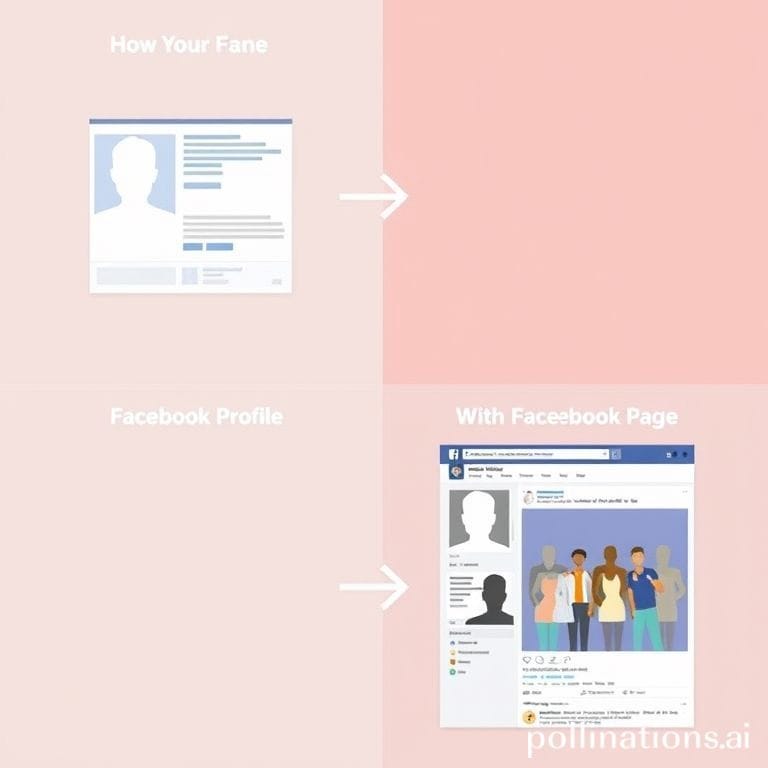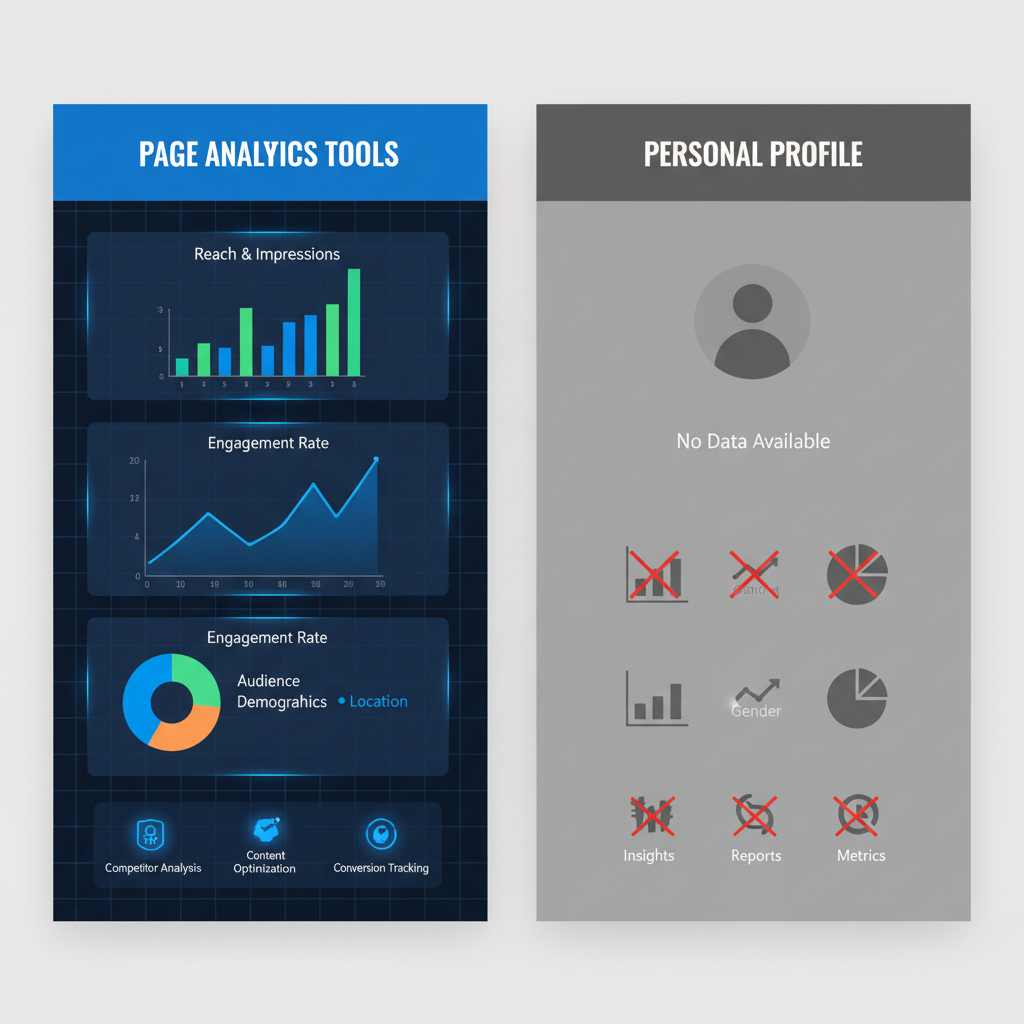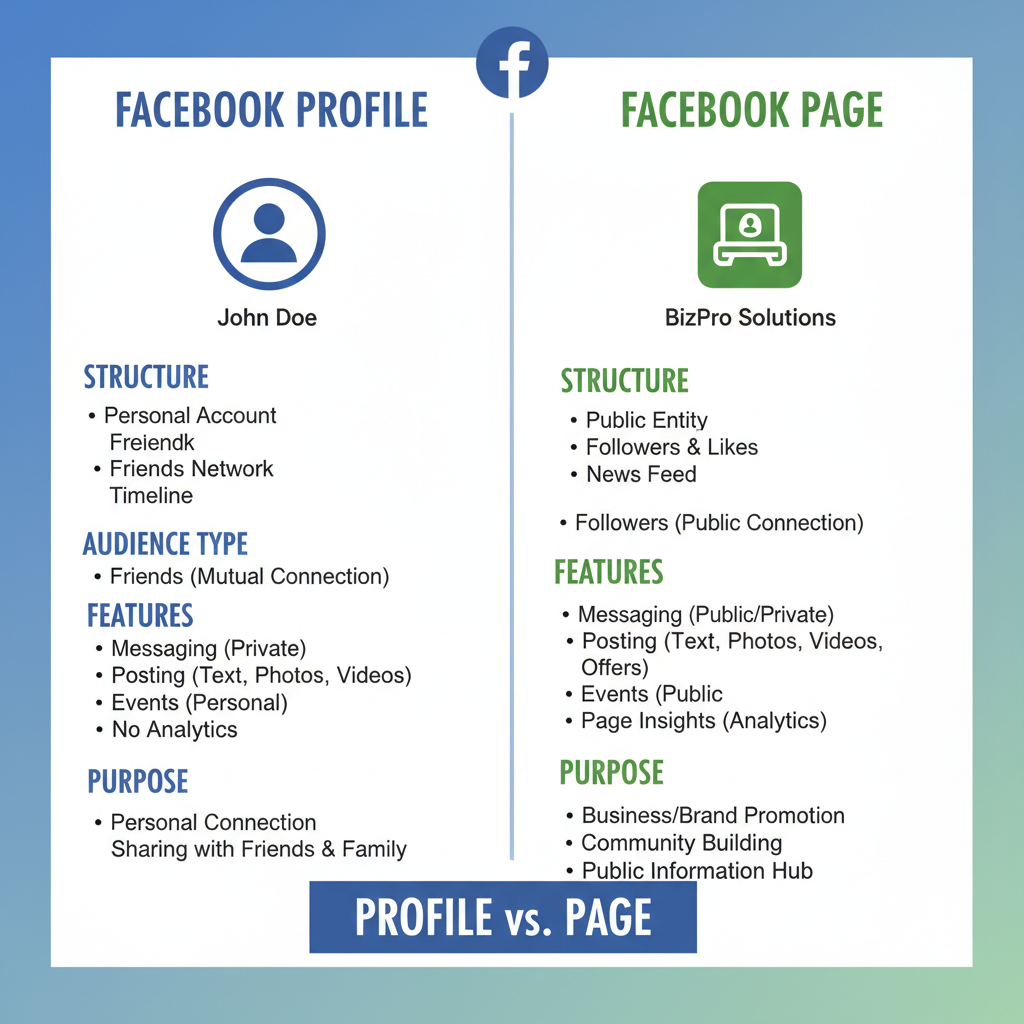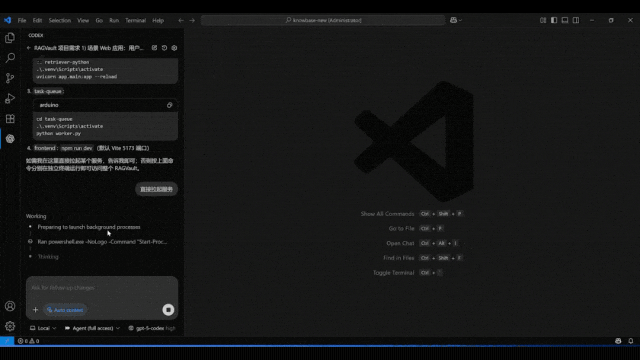Difference Between Facebook Profile and Page Explained
Learn the key differences between Facebook profiles and pages, including connection types, features, and which is best for your brand or personal use.

Introduction to Facebook’s Different Account Types
Facebook is one of the most popular social media platforms in the world, serving billions of users and offering multiple account types to suit different needs. While most people are familiar with Facebook profiles for personal use, fewer understand the important functions of Facebook pages for professional or public purposes. Not knowing the difference between a Facebook profile and a page can lead to missed opportunities, reduced reach, or even account restrictions.
In this guide, we clearly compare the difference between Facebook profile and page, so you can make the best choice for your personal brand, business, or project.

---
What is a Facebook Profile?
A Facebook profile is your personal account on Facebook, designed for individuals who wish to connect with friends, family, and acquaintances in a private or semi-private setting.
Key Purposes of a Profile
- Share personal updates, photos, and videos.
- Connect with other individuals by sending friend requests.
- Join groups, attend events, and interact with friends’ content.
- Manage privacy settings to control who sees your posts.
Profiles are people-centric—each profile represents a single human being (as per Facebook’s terms of service).
---
What is a Facebook Page?
A Facebook page is intended for businesses, brands, organizations, public figures, and communities to connect with people on a larger scale.
Key Purposes of a Page
- Build a public presence for a company, brand, or professional persona.
- Communicate with followers openly through posts, videos, and live streams.
- Run Facebook Ads and access advanced marketing tools.
- Track growth and engagement using built-in analytics.
Pages are entity-centric—they represent a non-person identity, such as a shop, music band, cause, or celebrity.

---
Structural Differences: Friends vs. Followers
One significant difference between Facebook profile and page is how connections are formed.
| Feature | Profile | Page |
|---|---|---|
| Connection Type | Friends (mutual) | Followers (one-way) |
| Max Connection Limit | 5,000 friends | No limit |
| Privacy Control | High – custom audience settings | Lower – mostly public by default |
| Visibility | Can be fully private | Public-facing for anyone on Facebook |
Profiles require mutual friendships, while pages allow anyone to follow without approval.
---
Feature Comparison: Messaging, Posting, Events, Analytics
When deciding between a profile and a page, their available features matter.
| Feature | Profile | Page |
|---|---|---|
| Messaging | Messenger for private chats | Messenger + automated responses |
| Posting | Status updates, photos, personal videos | Posts, scheduled content, promotions |
| Events | Create/join events | Create branded events with promotional options |
| Analytics | Basic engagement insights | Advanced Facebook Insights dashboard |
| Advertising Tools | None | Ads Manager & targeting capabilities |
Pages come with robust marketing tools, while profiles offer a more personal, straightforward experience.
---
Advantages of Using a Profile
- Personal intimacy and trust among friends.
- High privacy control for sensitive content.
- No need to manage brand identity formally.
- Simple setup ideal for purely personal interaction.
---
Advantages of Using a Page
- Unlimited followers for greater reach.
- Access to analytics and advertising tools.
- Professional, branded appearance.
- Suitable for teams and shared management.

---
Limitations and Restrictions of Each
Profiles
- Capped at 5,000 friends.
- Limited commercial activity allowed under Facebook policy.
- No access to advertising tools.
Pages
- Requires steady content creation and updates.
- Less personal—followers may feel less emotionally connected.
- Public visibility means lower privacy.
---
Ideal Use Cases
Profile
- Staying in touch with personal networks.
- Private conversations.
- Sharing daily life moments.
Page
- Marketing products or services.
- Growing a public persona.
- Building communities for causes or topics.
---
How to Convert a Profile to a Page: Step-by-Step
If you’ve been using a personal profile for business, converting to a page can improve reach and ensure compliance.
- Backup Your Data
- Download your profile information via Facebook Settings > “Download Your Information.”
- Access the Conversion Tool
- Visit `https://www.facebook.com/pages/create/migrate` for Facebook’s official migration tool.
- Choose Your Page Type
- Select Business, Brand, or Community.
- Transfer Friends to Followers
- Facebook will automatically convert friends to followers.
- Customize Your Page
- Add a cover photo, profile picture, description, and contact info.
- Review Settings
- Configure roles, privacy, and notifications.
- Announce the Change
- Inform followers about the new page format.
---
Tips to Maximize Reach and Engagement
For Profiles
- Post regularly but avoid excessive posting.
- Use privacy settings to control post visibility.
- Engage with friends’ content to strengthen connections.
For Pages
- Maintain a content calendar for consistency.
- Monitor Facebook Insights for performance analysis.
- Run targeted ad campaigns for niche audiences.
- Reply promptly to messages and comments.
---
Common Mistakes and Misconceptions
- Using a Profile for Business Long-Term – Can lead to restrictions or account termination.
- Neglecting Privacy Settings on Profiles – Review visibility to prevent unwanted exposure.
- Expecting Instant Growth on Pages – Pages require strategic, ongoing marketing.
- Confusing Followers with Friends – Followers may engage differently; plan content accordingly.
---
Final Summary
The difference between Facebook profile and page centers on purpose, connection types, and features:
- Profile = personal, friend-based, private, non-commercial.
- Page = professional, follower-based, public, with marketing capabilities.
Your choice depends on your goals:
- For personal life sharing with controlled access, use a profile.
- For promotions, large-scale reach, and analytics, choose a page.
---
Decision Checklist
Consider these questions:
- Are you representing yourself or a brand?
- Do you need advertising and analytics?
- Is your audience small and personal or broad and public?
- Do you require unlimited reach potential?
- Are privacy controls a priority?
Answering them will guide whether to stay with your profile or create a page.
---
Ready to grow your online presence? Evaluate your needs carefully, choose the right type of Facebook account, and start connecting with your audience effectively today.



